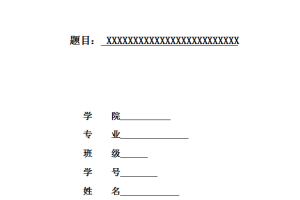江苏连吉特种胶带有限公司应收账款管理中存在的问题与对策
摘 要:随着市场竞争的加剧,企业为了获取更大的市场份额,纷纷采取了赊销的营销策略。赊销在带来销售上涨的同时也带来了应收账款的增加,企业应收账款占主营业务收入的比重大幅上升,坏账损失率在不断增加,严重影响了企业的经济效益。应收账款已经成为制约企业生存和发展的一个重要因素,本文以江苏连吉特种胶带公司为例,在总结了应收账款的相应理论之后,分析了企业应收账款的现状,包括其主要的财务数据、应收账款占主营业务收入的比例、账龄分析和应收账款前5名客户的情况等,指出了公司应收账款存在的问题,包括缺乏完善的客户信用评价体制、应收账款的事中控制不足、公司对应收账款的事后监控力度不足等问题,并分析了应收账款管理不善给企业经营所带来的问题,报表不能反映企业真实的经营状况、导致企业资金链危机、收款期延长导致违约风险增大、企业的日常管理风险增加导致营业外损失等。最后,作者提出了完善江苏连吉特种胶带公司应收账款管理的建议,包括了解市场、制定合理的信用体制,加强对应收账款的日常控制,完善对应收账款的风险管理。
关键词:应收账款;江苏连吉特种胶带公司;管理现状;问题;影响;建议
Portfolio management approach in accounts receivable management
Abstract: The basic financial purpose of an enterprise is maximization of its value. Trade credit management should also contribute to realization of this fundamental aim. Many of the current asset management models that are found in financial management literature assume book profit maximization as the basic financial purpose. These book profit-based models could be lacking in what relates to another aim (i.e., maximization of enterprise value). The enterprise value maximization strategy is executed with a focus on risk and uncertainty. This article presents the consequences that can result from operating risk that is related to purchasers using payment postponement for goods and/or services. The present article offers a method that uses portfolio management theory to determine the level of accounts receivable in a firm. An increase in the level of accounts receivables in a firm increases both net working capital and the costs of holding and managing accounts receivables. Both of these decrease the value of the firm, but a liberal policy in accounts receivable coupled with the portfolio management approach could increase the value. Efforts to assign ways to manage these risks were also undertaken; among them, special attention was paid to adapting assumptions from portfolio theory as well as gauging the potential effect on the firm value.
Keywords: accounts receivable;trade credit management;incremental analysis;value based management;portfolio analysis
目 录
1 绪论……………………………………………………… …………………………1
1.1 研究背景及意义 …………………………………………………………………1
1.2 研究方法与内容 …………………………………………………………………1
1.3 本文创新点 ………………………………………………………………………1
2 应收账款理论概述…………………………………………………………2
2.1 应收账款概念…………………………………………………………………2
2.2 应收账款形成的一般原因………………………………………………2
2.3 应收账款管理的目标…………………………………………………………2
2.4 应收账款的日常管理 ……………………………………………………………3
3 企业应收账款管理的现状分析……………………………………………3
3.1 公司简介 ………………………………………………………………………… 3
3.2 企业应收账款管理的现状 ………………………………………………………4
3.3 企业应收账款管理中存在的问题 ………………………………………………7
3.4 应收账款管理不善对公司经营发展的影响 ……………………………………7
4 应收账款管理的对策………………………………………………………………9
4.1 了解市场情况,建立合理的市场体制…………………………………………10
4.2 加强对应收账款管理的内部控制………………………………………………10
4.3 完善对应收账款的风险管理……………………………………………………10
结论 …………………………………………………………………………………12
参考文献……………………………………………………………………………13





